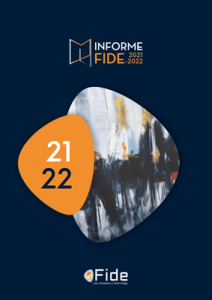
We are approaching the Spanish Presidency of the Council of the European Union. On July 1, Spain will raise its torch. A recent survey shows that almost half of citizens are unaware that we will soon take over from the European semester and only 28% know what a presidency of the Council of the EU is. We are immersed, engulfed, in a permanent electoral campaign in which our semester will coincide with the general elections since the European presidency will end on December 31 of this year.
The main risks are: the temptation of the Government not to differentiate the acts of the presidency with those of the campaign of its party, or of its partner parties, and that the ordinary citizen does not identify the Spanish Presidency of the Council of the European Union between the springs of the electoral campaign, of the roller to which all the parties are hooked. Even political parties, all of them, run the same risk, that of not differentiating acts, messages, content, meetings in cities. And this confusion, deliberate or not, is not positive if it is not channeled from now on with a political perspective, and also communication, commitment, consensus, collaboration, responsibility and joint work.
On July 2023, 2010, Spain will assume the Presidency of the Council of the EU for the fifth time. The last time he held it was in the first half of XNUMX. The presidency consists of meetings of European ministers from all areas, disciplines, as well as working groups. Spain opens a "trio" of presidencies, Belgium and Hungary will follow our country. This format of three has as its main objective to give continuity to the axes of work. Opening this stage places Spain in a prominent place since its guidelines will have more strength from a privileged position to promote them.
In addition, our semester will have an impact on the next European cycle, on the next European legislature, since the next elections to the European Parliament will be held in May 2024 and afterwards, a new European Commission will be appointed.
Therefore, we can see that our European presidency is being held at a key stage both because of the global geopolitical context and because of the electoral stretch we are going through.
The contents of the ministerial meetings that will take place in twenty-five Spanish cities will mark the work and the political decision of the EU of the next legislature. The vector themes: ecological transition, digital transformation, European strategic autonomy, migration, social agenda, competitiveness..., constitute the real axes that impact on citizens, on companies, on the industrial and productive fabric, on our future. I believe it is essential that the debates also put on the table an issue that requires political will and a broad vision for the process of European integration: the necessary reform of the treaties.
During the European semester, I would like to highlight the summit of leaders that will be held on October 5 and 6 in La Alhambra, Granada, and the EU-CELAC summit, (Community of Latin American and Caribbean States) that will take place on October 17 and 18. July in Brussels with a direct message: the strengthening, and updating, of relations with Latin America must be carried out with the involvement of all the Member States of the European Union. Spain has a privileged place because of our roots in Latin America and because of our common language: Spanish.
I consider it relevant to highlight the idea, I would almost say the mandate, that the presidency belongs to everyone and that, therefore, all institutions, entities, parties and civil society must participate in this exercise of political and social representation. A time of responsibility, work, representativeness. Also of opportunity and illusion by positioning Spain in a place of maximum visibility before the EU itself, the world and before itself.
The Spanish Presidency of the Council of the European Union is a presidency of all parties. We have the opportunity to show the best of ourselves as Spaniards, to expose how we are capable of separating the electoral campaign from a common project and work: our European presidency. To make compliance with the values, the Charter of Fundamental Rights of the EU transversal in all the meetings of European ministers, to once again raise the path towards a European Constitution, of the European constitutional model. The Government and political parties must bear in mind that the Spanish Presidency of the Council of the European Union belongs to all Spanish, European citizens. Spain has the great opportunity, and the duty, to proudly mark its imprint.

Susana del Rio
Expert in the European Union. Director of the Cycle of Sessions on the Spanish Presidency of the European Union. Academic Counselor of Fide.
Article originally published in THE NEWSPAPER and Vocento Group.



















